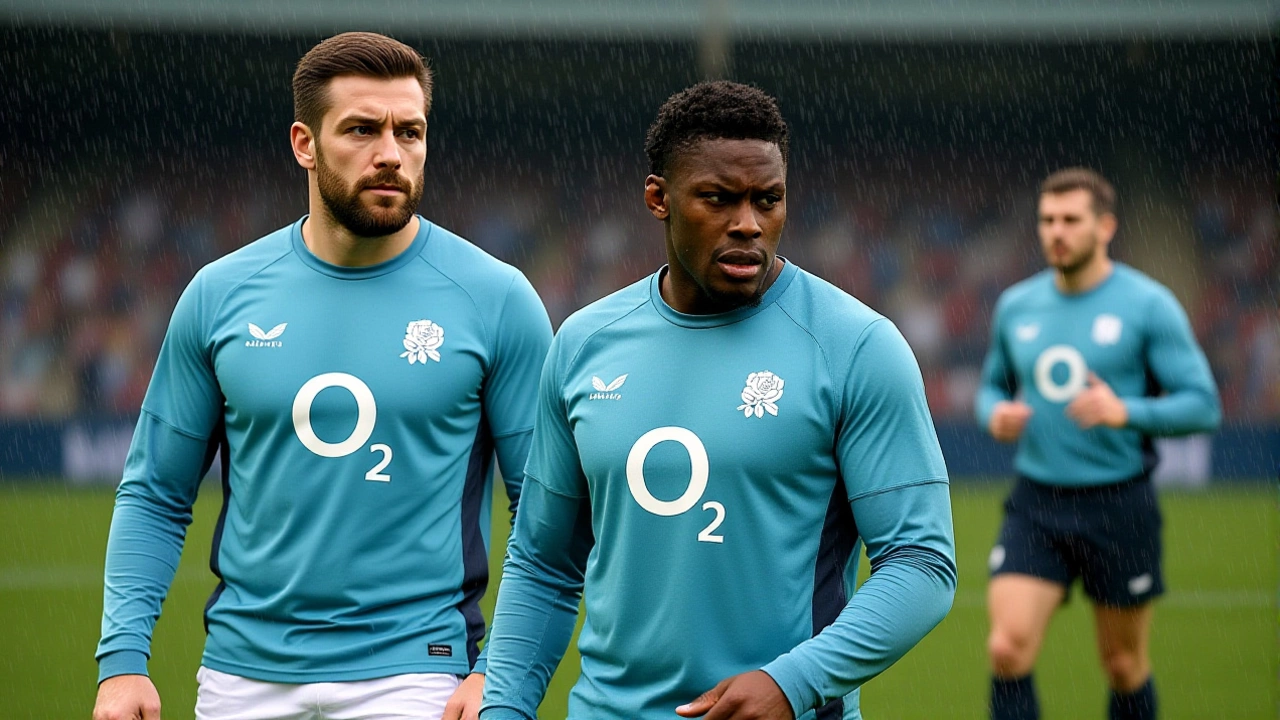On October 4, 2025, South Africa clinched their sixth Rugby Championship title in dramatic fashion, edging out Argentina 29-27 at Twickenham Stadium in London. The win wasn’t just about points—it was about legacy. With 19 total points in the standings, South Africa edged out New Zealand (17 points) despite both teams finishing 4-2 in the round-robin. The match, watched by 81,750 fans, was the final Rugby Championship before the tournament transforms into a biennial competition called the Nations Championship in 2026. This wasn’t just another final. It was the end of an era.
The Deciding Moment at Twickenham
Down 27-26 with under three minutes left, South Africa’s Manie Libbok stepped up. A penalty from 42 meters, under pressure, with the crowd roaring. He buried it. The ball sailed true. The stadium erupted. That kick—his fifth successful conversion and fourth penalty of the night—sealed the title. Argentina had fought valiantly, with fly-half Tomás Cubelli kicking 17 points, including a late try that put them ahead. But South Africa’s defense held firm in the final 90 seconds, repelling three desperate Argentine attacks near the try line. It was the kind of finish that makes rugby fans forget sleep, work, and even dinner.
How They Got Here: A Season of Contrasts
South Africa’s path to the title wasn’t smooth. On September 6, 2025, at Eden Park in Auckland, New Zealand stunned them 24-17. The All Blacks raced out to a 14-0 lead, with Emoni Narawa scoring inside the first minute. But South Africa clawed back, thanks to Handre Pollard’s boot and a gritty second-half effort. That loss sparked something. They didn’t just adjust—they evolved.
Then came the 43-10 thrashing of New Zealand in Wellington. ESPN called it the All Blacks’ heaviest defeat ever. South Africa scored six tries in the second half alone. Cheslin Kolbe, the electric winger, bagged two. Kwagga Smith, the flanker, was everywhere. RG Snyman bulldozed through tackles. Libbok added four conversions and a penalty. New Zealand’s captain, Scott Barrett, admitted afterward: “We created 13 opportunities. Sometimes teams don’t get those opportunities against New Zealand.” The truth? South Africa didn’t just play better—they played smarter, faster, and hungrier.

The Numbers Behind the Glory
South Africa finished the tournament with 159 points scored and 151 conceded—a +8 differential. New Zealand, despite the same win-loss record, had a -13 differential after conceding 165. Argentina, who scored the most points overall (162), also gave up the most (214). Their 29-23 win over New Zealand was a bright spot, but inconsistency cost them. Australia, plagued by defensive lapses, finished third with just 11 points.
Key stats: South Africa won 83% of their lineouts, 92% of their scrums. Pollard, who kicked 101 points across the tournament, was the steady hand. Kolbe, with five tries, was the spark. Eben Etzebeth, the veteran lock, played every minute of the final four matches. This wasn’t just a team—it was a machine honed by pressure.
The End of an Era
Twickenham hosted only its second Rugby Championship match—the first was Argentina vs. Australia in 2016. Choosing London for the finale wasn’t random. It signaled a global ambition. With the Nations Championship set to launch in 2026, the format will shift to biennial play, incorporating more nations and reshaping international calendars. The current structure—South Africa, New Zealand, Australia, Argentina—has defined Southern Hemisphere rugby for over a decade. Now, it’s being replaced by something bigger, more complex, and less predictable.
For South Africa, this title was their first since 2021. It also meant retaining the Freedom Cup, a trophy awarded for their wins over New Zealand. But more than that, it was proof that even after losing at Eden Park, they could adapt, endure, and win when it mattered most.

What Comes Next?
The Nations Championship will debut in 2026 with expanded participation—rumors suggest Japan, Fiji, and possibly Georgia could join. The timing will shift to avoid clashing with European club seasons. World Rugby is betting on a global audience. But for now, the old guard still rules. South Africa, with six titles, stands alone at the top. New Zealand, with 15 titles overall, remains the most decorated. But on October 4, 2025, the Springboks didn’t just win a match—they wrote the final chapter of a chapter.
Frequently Asked Questions
How did South Africa win the championship despite having the same wins as New Zealand?
Both teams finished 4-2, but South Africa earned 19 points to New Zealand’s 17 due to a superior point differential (+8 vs. -13). Bonus points for scoring four or more tries and losing by seven or fewer points also played a role. South Africa’s consistent scoring and tighter defense gave them the edge in tiebreakers.
Why was the final held at Twickenham instead of a home nation venue?
World Rugby chose Twickenham to maximize global exposure ahead of the Nations Championship launch. The 81,750 attendance was the largest of the tournament, signaling a strategic push to grow the game in Europe. It was only the second time the Rugby Championship had been played in the UK, following Argentina’s 2016 match against Australia at the same ground.
Who were the standout players for South Africa in the 2025 Rugby Championship?
Handre Pollard led the scoring with 101 points across six matches, while Cheslin Kolbe scored five tries and was a constant threat. Manie Libbok’s boot was decisive in the final, contributing 17 points, including the championship-winning penalty. Eben Etzebeth and Kwagga Smith anchored the forward pack, playing every minute of the final four games.
What was the significance of South Africa’s 43-10 win over New Zealand?
It was New Zealand’s heaviest-ever defeat in international rugby, surpassing their previous worst loss of 35-7 in 2023. South Africa scored 36 points in the second half alone, with six tries. The result ended New Zealand’s 13-match winning streak against South Africa since 2019 and marked a psychological turning point in the rivalry.
Why is the Rugby Championship changing to a biennial format?
World Rugby aims to reduce player workload and create space for expanded global competitions like the Nations Championship, which will include non-traditional rugby nations. The move also aligns with the World Cup cycle, allowing top teams to focus on preparation without annual tournament fatigue.
How did Argentina perform in the 2025 Rugby Championship?
Argentina finished fourth with 10 points but showed remarkable growth, scoring the most points overall (162) and defeating New Zealand 29-23. Their loss to South Africa in the final was narrow—29-27—and they led late. It marked their best campaign since 2021, proving they’re closing the gap with the top three teams.
